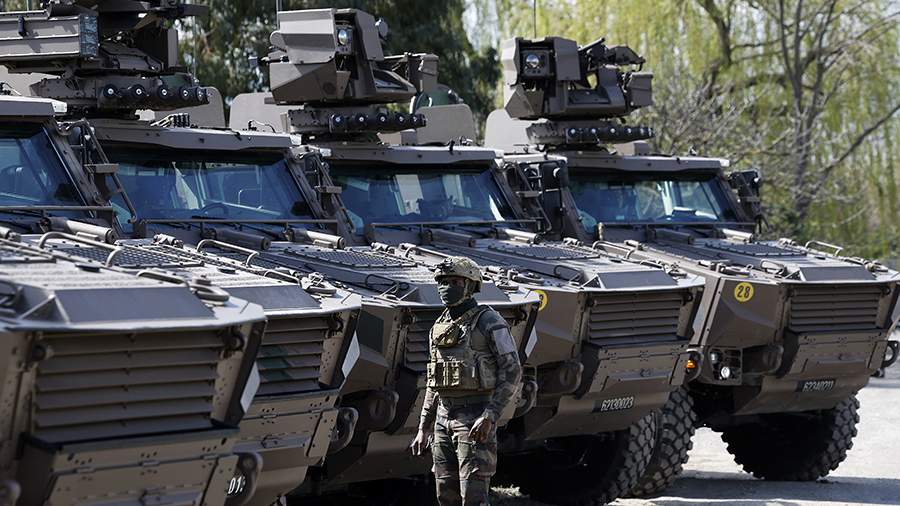Europe is softening its stance on sending peacekeepers. And here's why

After the failure of the negotiations in London, Western countries that declared their readiness to send their peacekeepers to Ukraine, also known as the "coalition of the willing," are losing their enthusiasm. The distancing of the United States and the weak involvement of the coalition members themselves played a role in this. Why sending European peacekeepers to Ukraine is unlikely is in the Izvestia article.
What is the essence of the coalition
• The "Coalition of the Willing" unites about 30 countries, primarily European ones, which allow their forces to participate in a possible peacekeeping mission in Ukraine. France and the United Kingdom are coordinating this gathering. British Prime Minister Keir Starmer announced the creation of such an international format in March 2025. At the same time, at the summit in Paris on March 27, Britain and France promised to send their troops to Ukraine. According to the Europeans, such a step should ensure a ceasefire.
• However, not all members of the association agree with sending their people to Ukraine. Some countries want to get Washington's consent. Others, in particular Warsaw, are ready to help their coalition colleagues "from a distance". Thus, Polish Foreign Minister Radoslaw Sikorski clarified that the country would not send its troops, but would "provide support" to the rest.
There are also attempts to resume dialogue with Russia in order to prevent an imminent escalation in Ukraine. For example, Finnish President Alexander Stubb suggested starting negotiations with Moscow. The Russian Federation replied that they were open to restoring relations with Helsinki.
• The fact that not all members of the "coalition" have a decisive attitude is also supported by the fact that on April 10, only six countries publicly confirmed their readiness to send troops to Ukraine — Great Britain, France and the Baltic states (Estonia, Latvia and Lithuania). The sixth state was not named. All this calls into question the realism of such a mission.
Possible clash between Russia and NATO
• European countries are delaying the possible date of sending troops. And there are a number of good reasons for this. In particular, if this mission is sent to Ukraine, the situation will escalate. Russia has repeatedly warned that sending military or "peacekeepers" who will increase Ukraine's combat readiness could lead to World War III. The Russian side is confident that the real goal of the Europeans is to establish control over Ukrainian territory.
• The Kremlin is confident that the peacekeepers sent will in fact be "NATO forces and means on the territory of Ukraine." And one of the primary reasons for the beginning of the SVR was to prevent this. Therefore, Moscow strongly opposes this idea, emphasizing that foreign peacekeepers will become a legitimate military target for Russia.
• European countries are delaying sending their troops to the conflict zone, realizing the risks of the situation. If troops come under fire, countries will have to react. Then the "coalition of the willing" and all NATO countries will automatically find themselves on the verge of conflict with Russia.
A solo mission
• Traditionally, the United States has been the financial and military locomotive of the EU and NATO. The Americans provided money, equipment, intelligence, and logistics. But the events of recent days have shown that Washington can withdraw from the negotiation process on Ukraine. U.S. Secretary of State Marco Rubio warned that the White House wants to see clear signs that a deal is possible. However, negotiations in London were disrupted shortly after this statement. According to Western agencies, on the eve of the meeting, Kiev provided a document according to which the Ukrainian side would not negotiate on the territories before an agreement on a "complete and unconditional cease-fire" was reached.
• Without the possible support of the United States, the "coalition of the willing" turned into a "coalition of the doubters." Washington is still the command post of the entire Western security system. Without the participation of the American side, everyone starts a race for leadership, and instead of a clear plan, a round dance of disparate ambitions turns out.
• At the same time, according to American media reports, the White House is preparing a plan that analyzes the possibility of creating a "joint commission" to monitor the observance of the ceasefire on the line of contact. According to the idea of the Americans, it could include the Russian and Ukrainian military, as well as representatives of third countries, including those who are not members of NATO. The United States could potentially participate in this mission, but only in terms of funding. However, the specific outlines of the initiative have not yet been officially announced.
• UN peacekeepers need the approval of the Security Council, but Russia has the right of veto. From a legal point of view, the alternative mission proposed by European countries can be considered as a military intervention. According to European diplomatic sources, when sending peacekeepers to Ukraine, we are not talking about soldiers or "blue helmets." The European contingent will only "observe and monitor". At the same time, there is no clear mission concept.
During the preparation of the material, Izvestia interviewed:
- Denis Denisov, Director of the Institute of Peacekeeping Initiatives and Conflictology;
- political scientist Yuri Svetov.
Переведено сервисом «Яндекс Переводчик»



